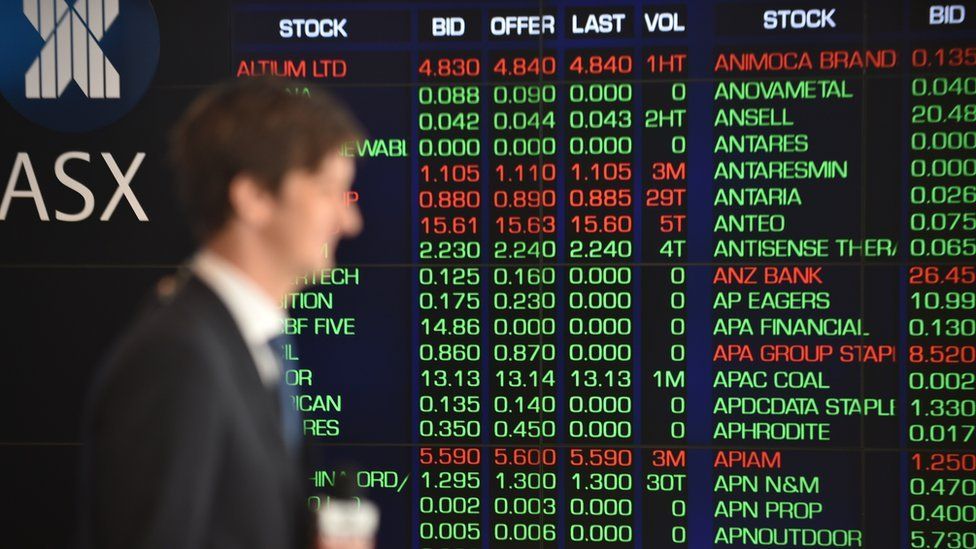Australia cuts interest rates to 1.75% ahead of budget
- Published

The Reserve Bank of Australia has cut its benchmark interest rate to a historic low of 1.75%, the first reduction since May 2015.
The bank cited lower-than-expected inflationary pressures for the cut, from the previous rate of 2%.
Data published last week showed inflation is at a record low - well below the target band of 2%-3%.
Investors in Australia cheered the bank's move. The benchmark S&P ASX 200 jumped 2% to close at 5,353.80.
"The board judged that prospects for sustainable growth in the economy, with inflation returning to target over time, would be improved by easing monetary policy at this meeting," said Reserve Bank of Australia governor Glenn Stevens in a statement.
The rate cut comes hours ahead of the federal budget for 2016-17.
Small tax cuts and increased spending on health, infrastructure and education have already been foreshadowed or announced to be part of the budget.
It is also seen as an unofficial election campaign launch. Prime Minister Malcolm Turnbull will dissolve parliament and call an early election on or before 11 May.
Chinese manufacturing
Elsewhere in the region, other Asian stock markets were higher on Tuesday following positive trading sessions in the US and Europe on Monday.
In South Korea, the Kospi index closed up 0.4% at 1,996.41.
Trading in China restarted after a long weekend and the Shanghai Composite index closed up 54.32 points, or 1.85%, at 2,992.64.
Investors shrugged off a private survey which indicated a mild contraction in China's manufacturing activity. The Caixin Purchasing Managers' Index (PMI) came in at 49.4 in April, compared with 49.7 in March.
A reading below 50 indicates a contraction. The PMI tracks activities in factories and workshops.
The data differs from China's state figures released at the weekend, which showed a reading of 50.1 for April, compared with 50.2 in March.
In Hong Kong the Hang Seng index fell 390.11 points, or 1.85%, to 20,676.94.
Markets in Japan are shut for three days of national holidays and will re-open on Friday.